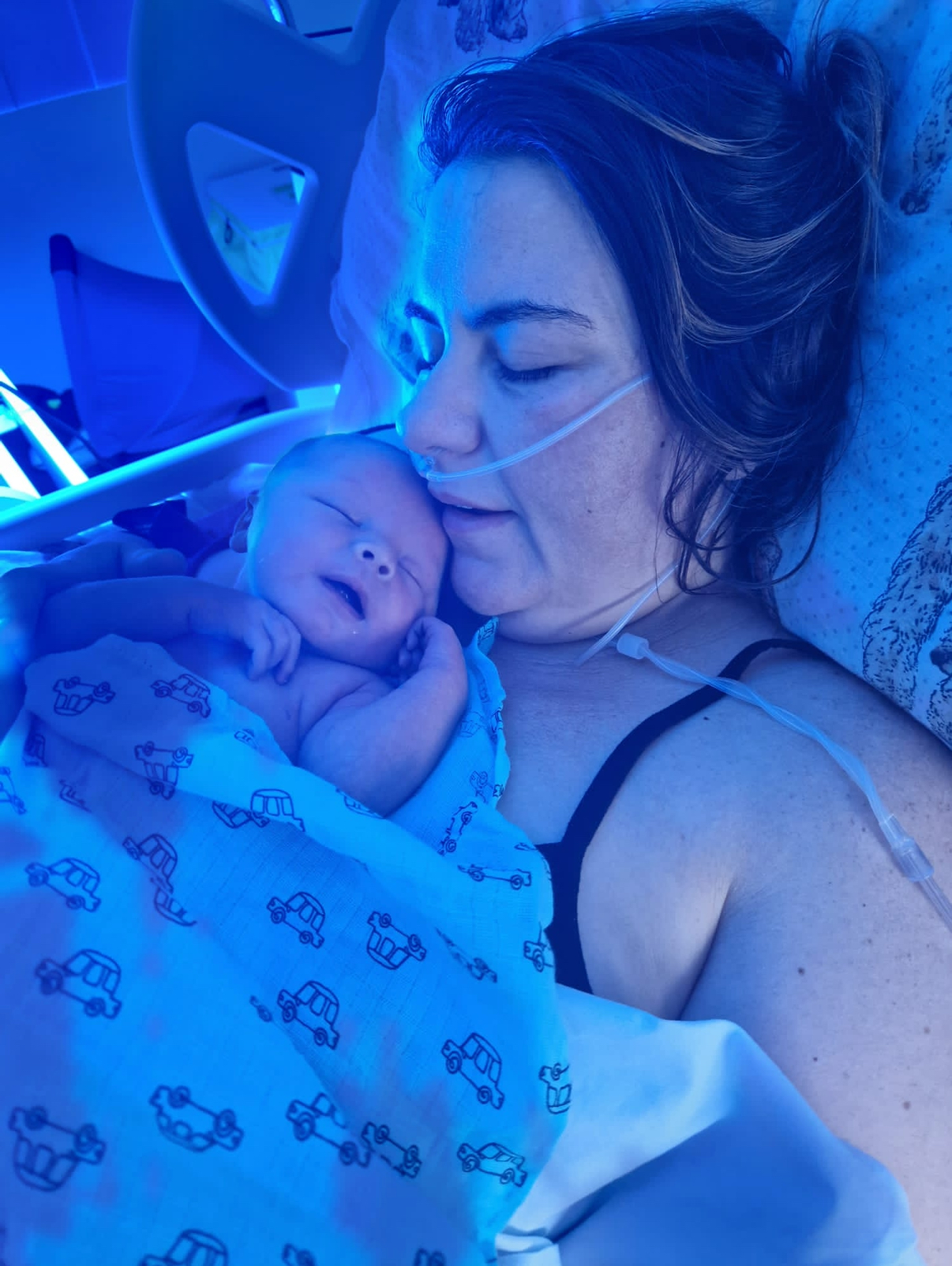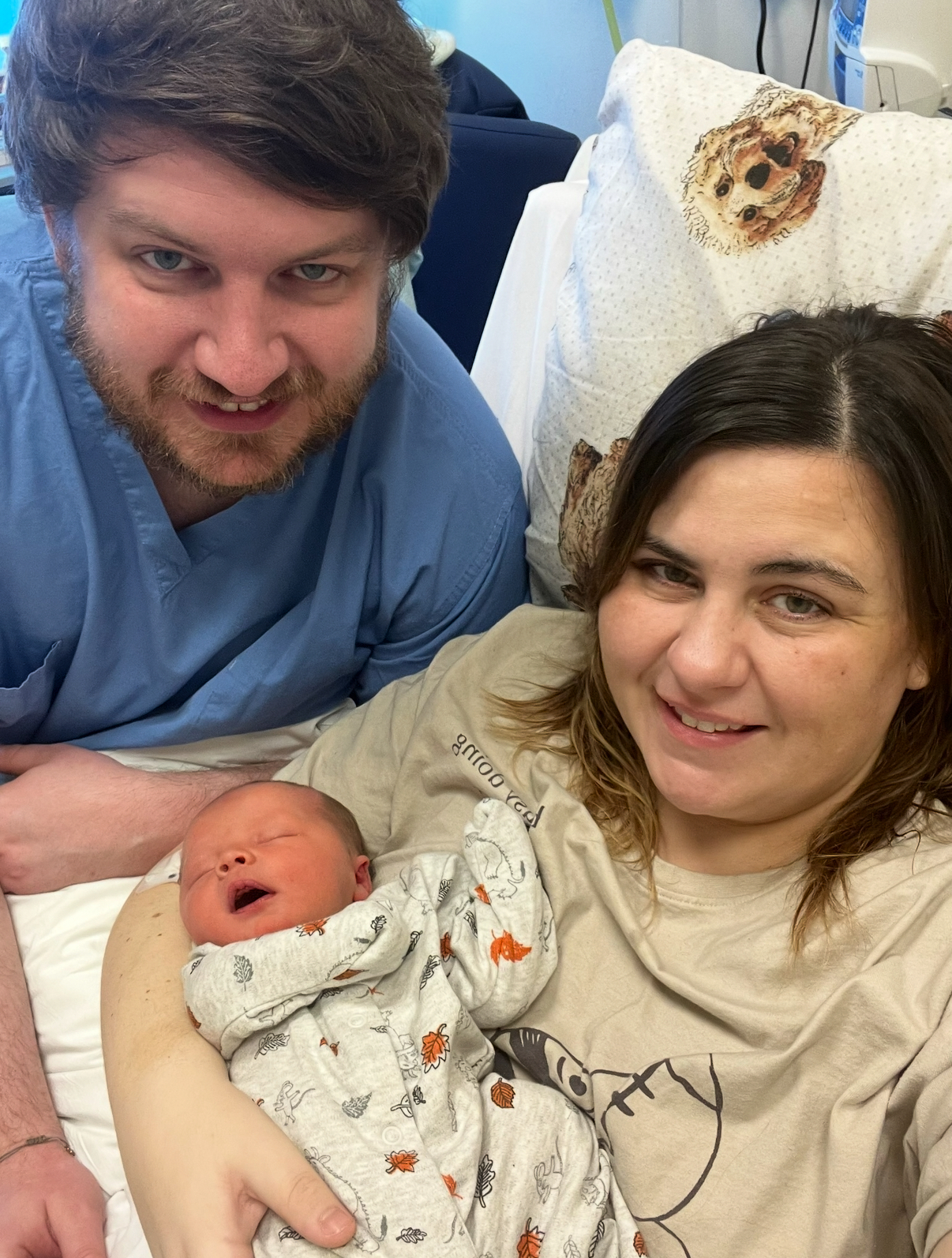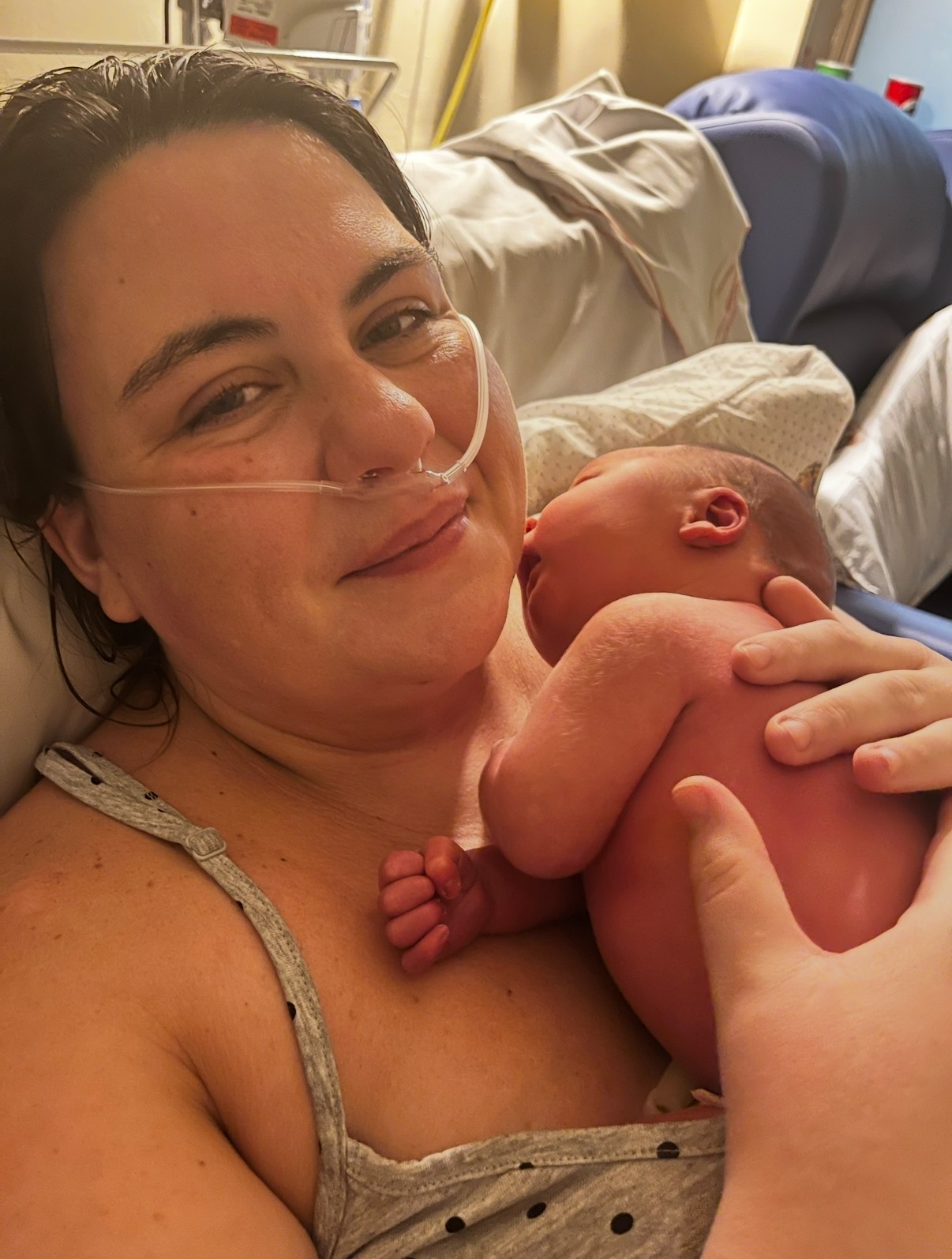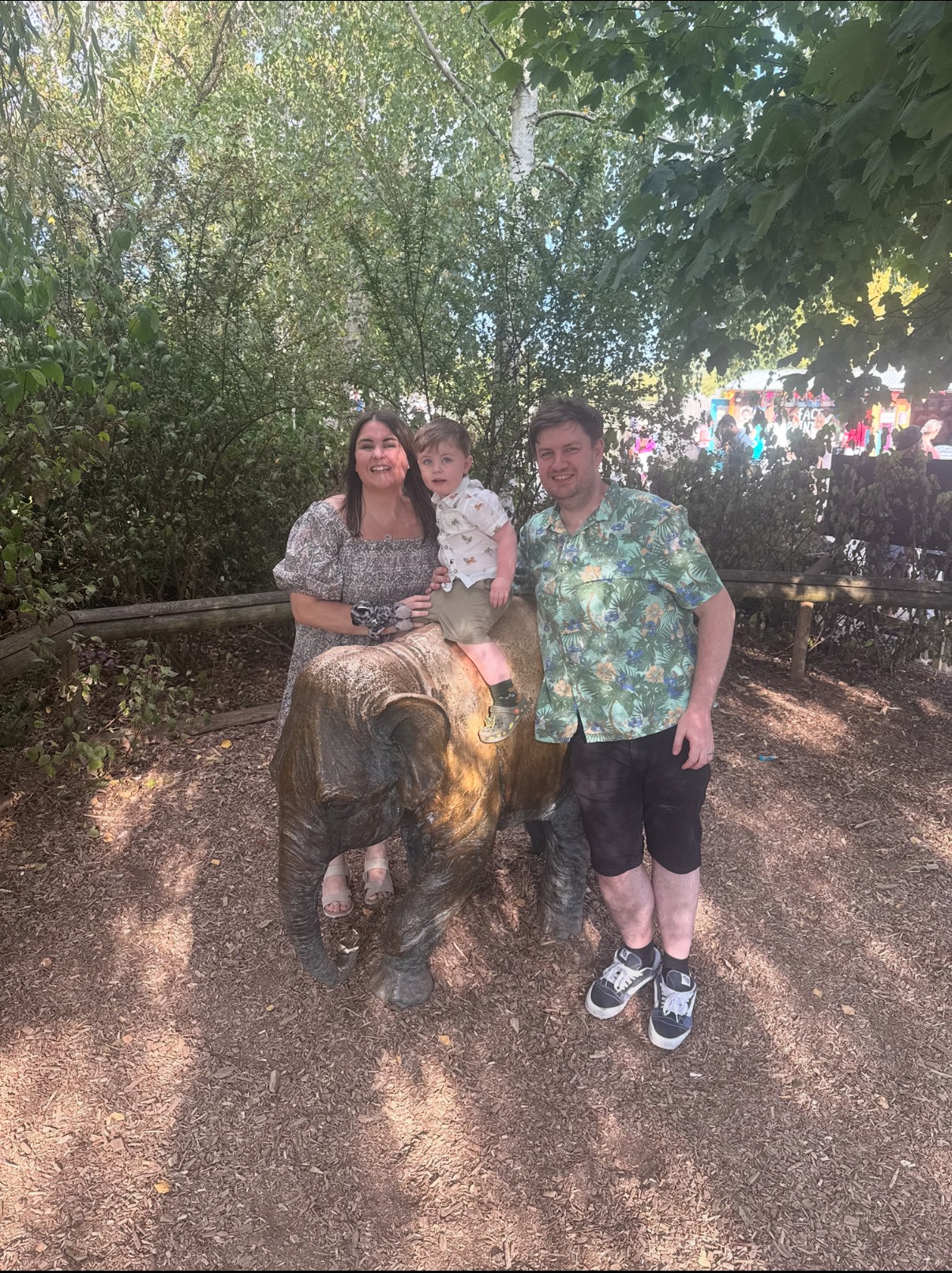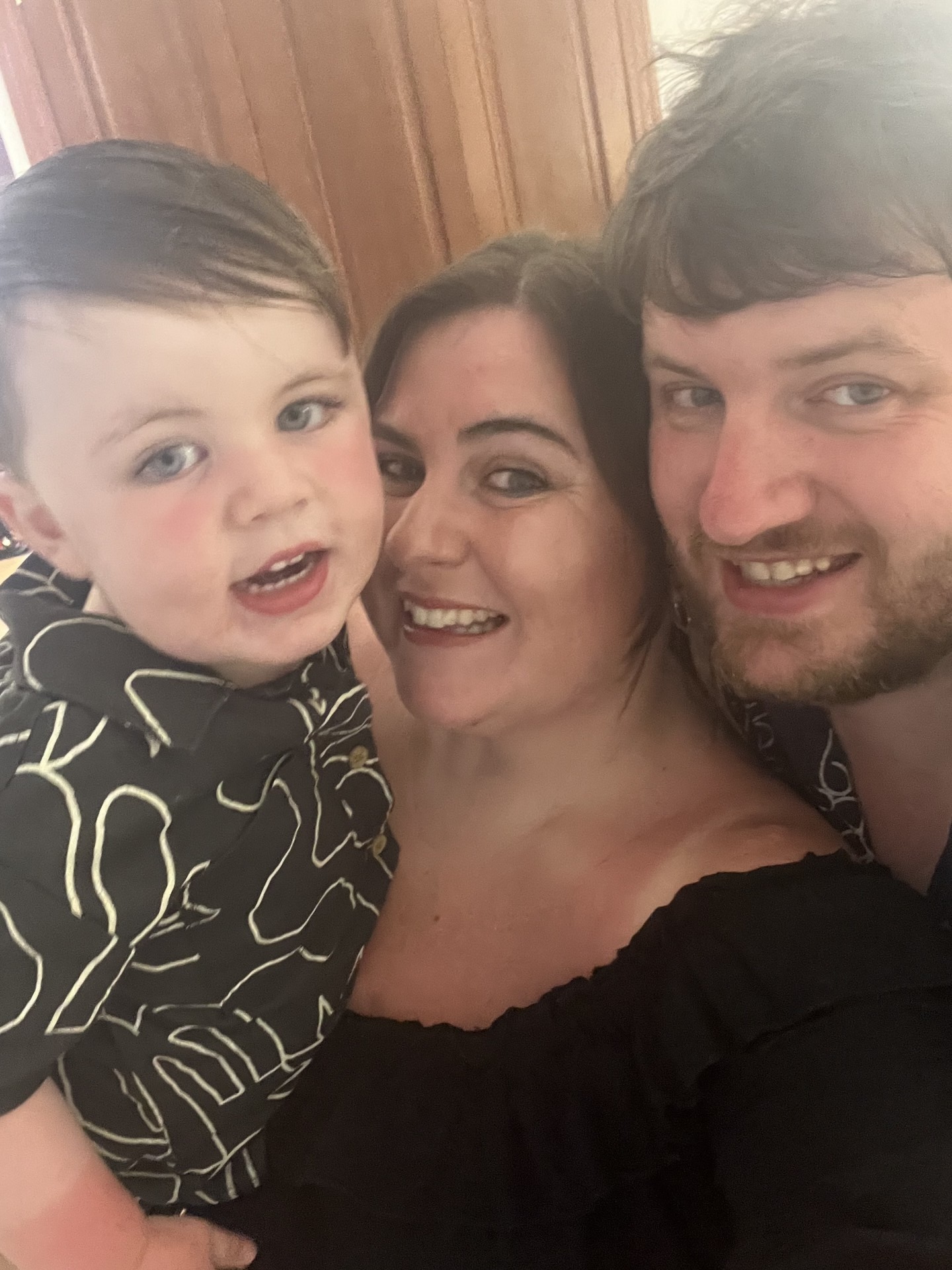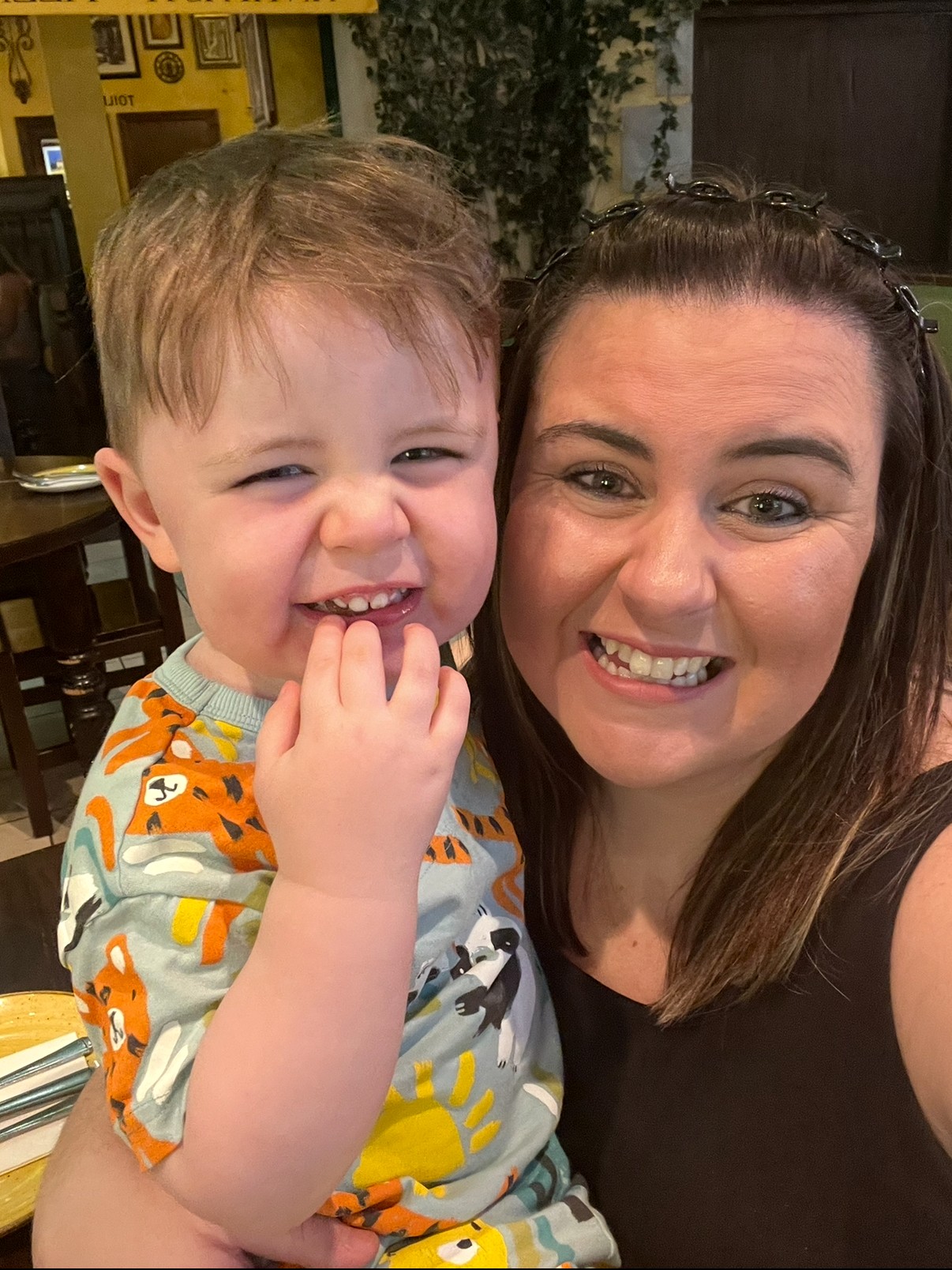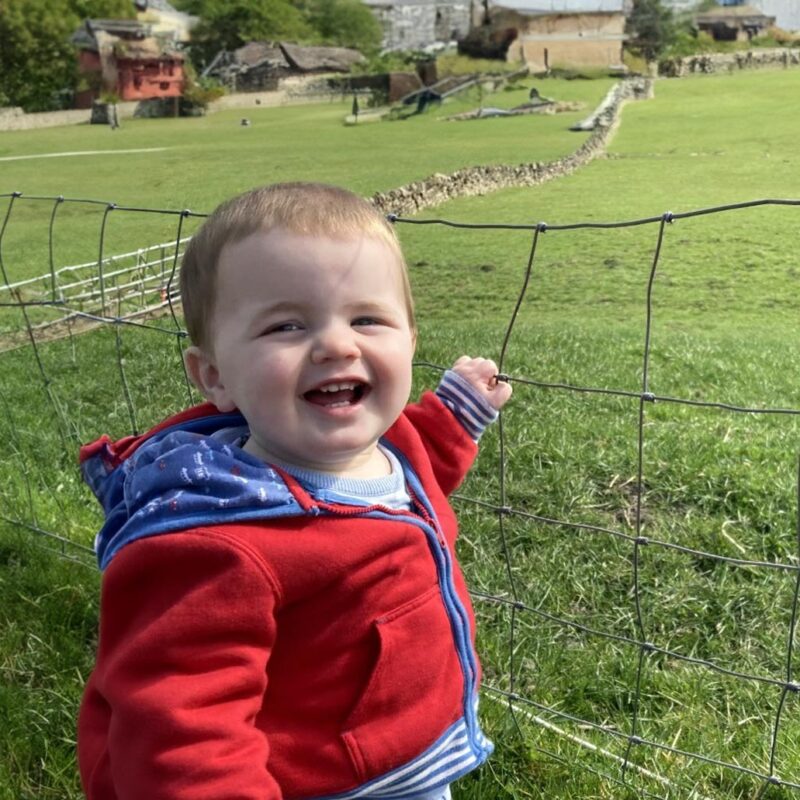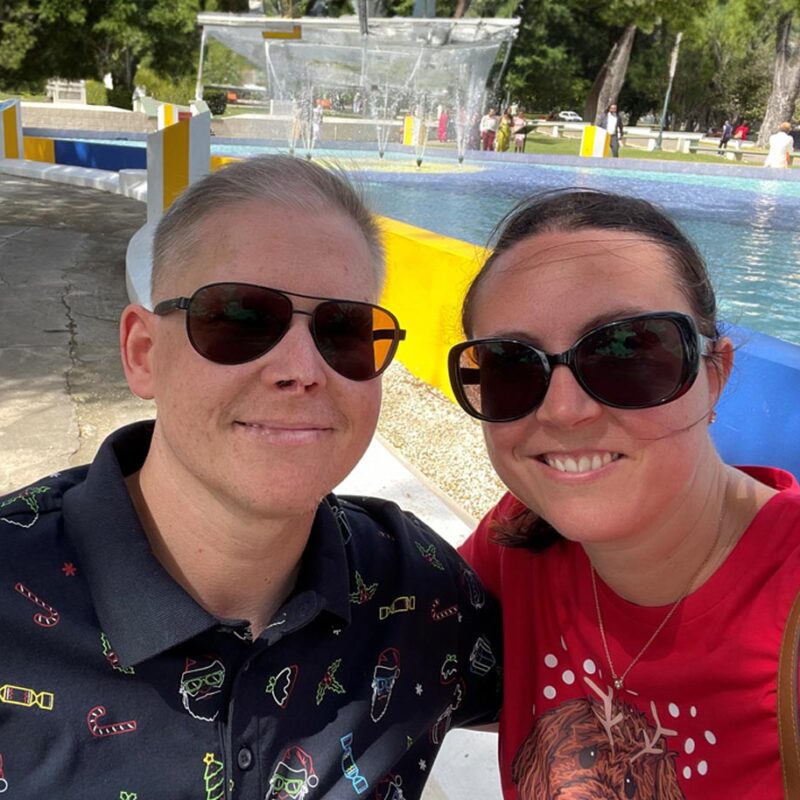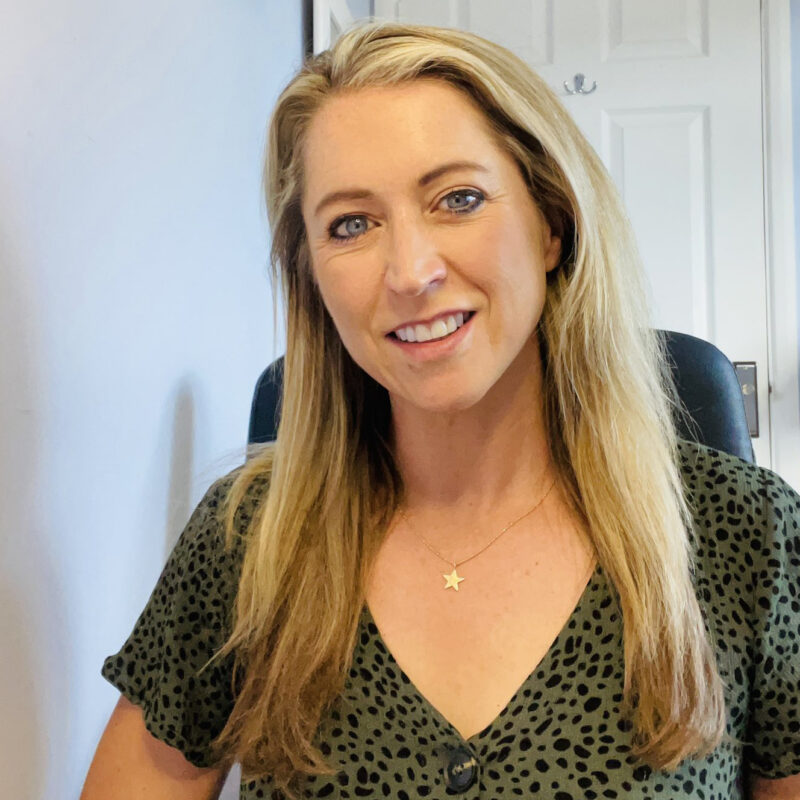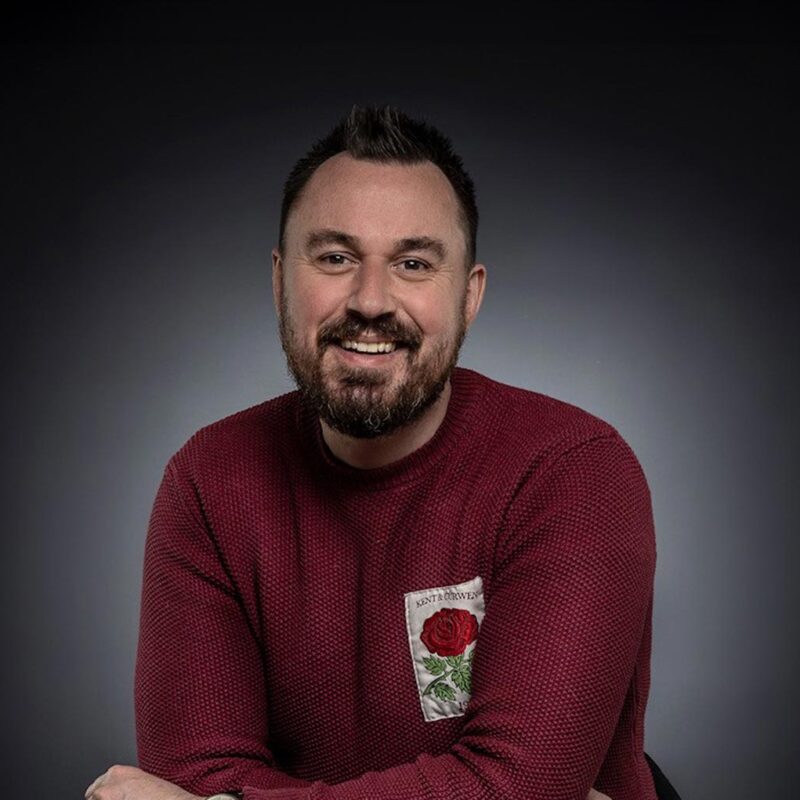Just four days after giving birth to her miracle baby, Alex Paterson went into septic shock, with doctors telling her that she was an hour away from death.
She credits her newborn son, Oliver, with saving her life – after his own hospital admission for jaundice put her in the right place at the right time. She’s sharing her story now to encourage new mothers to advocate for themselves if something doesn’t feel right after giving birth.
Alex Paterson, 37 from Hyde Greater Manchester, became a mum for the first time when her baby boy Oliver was born at 36 weeks on 11 January 2023. After three days of induction, 12 hours on the hormone drip and an emergency caesarean section, she was discharged 48 hours later.
But just days into new motherhood, Alex began to feel extremely unwell.
“I felt like I was going to die,” Alex said. “I was scared and alone, I was three weeks away from my 35th birthday with my miracle baby, convinced he was about to lose his mother.”
When Oliver was admitted to a children’s ward three days after birth for jaundice, the nurses were immediately concerned about Alex’s condition. She was so weak she could not walk and was taken by a hospital porter to triage.
“I had been telling people for 24 hours that I was sick,” Alex said. “Everyone kept saying it was ‘just a c-section’, that I would feel better in a few days. Yet somehow I felt like I was dying. Well, that’s because I was.”
While in triage, Alex’s condition deteriorated further.
“The midwife pulled me out of bed and threw me in a wheelchair quicker than I can explain,” Alex said. “She ran to a private room in the labour ward next door while wheeling me down the corridor shouting, ‘EMERGENCY EMERGENCY.’”
Alex went into septic shock. Her kidneys had already stopped working and she was surrounded by doctors, nurses and midwives frantically trying to save her life.
“My partner Adam was stood by the door with tears in his eyes looking like someone had died, he had come to my aid after receiving a voice note from me which I had no recollection of sending, but it was clear I was confused and struggling to breath,” Alex said. “I panicked, worried about Oliver – but it wasn’t Oliver they were worried about, it was me.”
She was later told that if she had been at home when she went into septic shock, she would not have survived.
“I got told they had an hour to save my life. One hour was the difference between life or death,” Alex said.
Blood tests revealed Alex had pneumonia, a womb infection, a deflated lung and sepsis.
“Doctors, nurses, midwives, they worked on me round the clock trying to get on top of the infection and all the symptoms it brings,” Alex said. “And even then I didn’t know it was sepsis. It took a few days for me to become alert again and when I found out I couldn’t believe it.”
The physical and emotional impact was immense.
“I was a new mum unable to care for my baby, I had to stop breastfeeding just five days post partum due to the dye used in the CT scan to diagnose me, and even without that, I was unable to stay awake,” Alex said. “This caused me trauma more than I can ever explain, I lost once-in-a-lifetime experiences and precious time that I’ll never get back, and I am still working my way through dealing with that now.”
She remembers the terror of almost losing everything she had waited so long for.
“To know I waited 35 years for my baby, to almost die a matter of days after he was born, leaving him without his mum, is a horrific feeling and one I can never put into words,” Alex said.
Now, Alex says she is grateful for every moment with Oliver.
“I had the world’s biggest wake-up call, and life became so precious to me,” she said. “I am so grateful for every minute of every day that I get to be here and watch my baby grow. I nearly lost it all in the blink of an eye. I’m one of the lucky ones because I’m here able to share my story – many other people aren’t.”
Alex hopes her experience will encourage others to speak up if they feel unwell after surgery or childbirth.
“Fight for yourself. Don’t be dismissed. Demand treatment and testing,” she said. “Sepsis can be treated if picked up on time. Use your voice and make sure people listen.”
She also has a message for healthcare professionals: “You should listen to patients. It was never just a c-section.”
And to Oliver, she says simply: “Thank you for putting me in the right place at the right time. You have saved my life more than you could ever know.”
Learn more about maternal sepsis.
